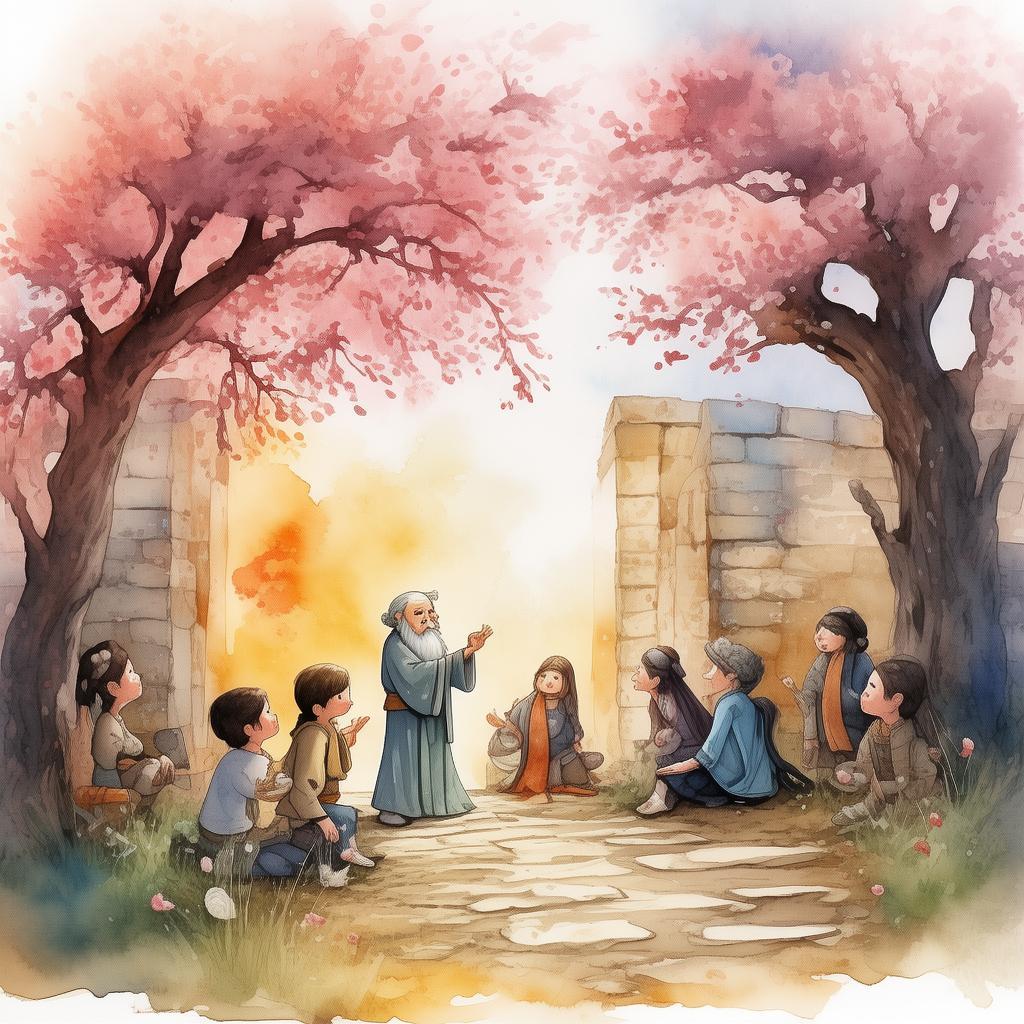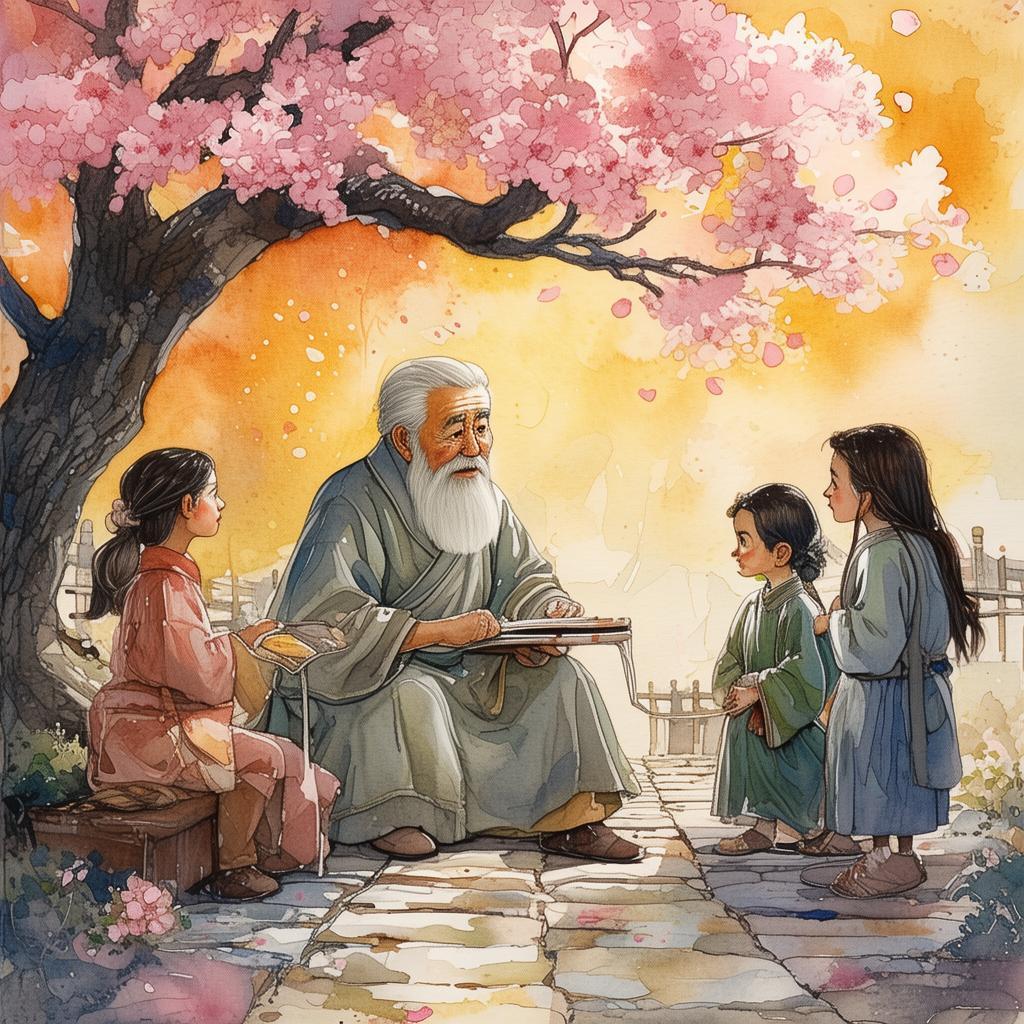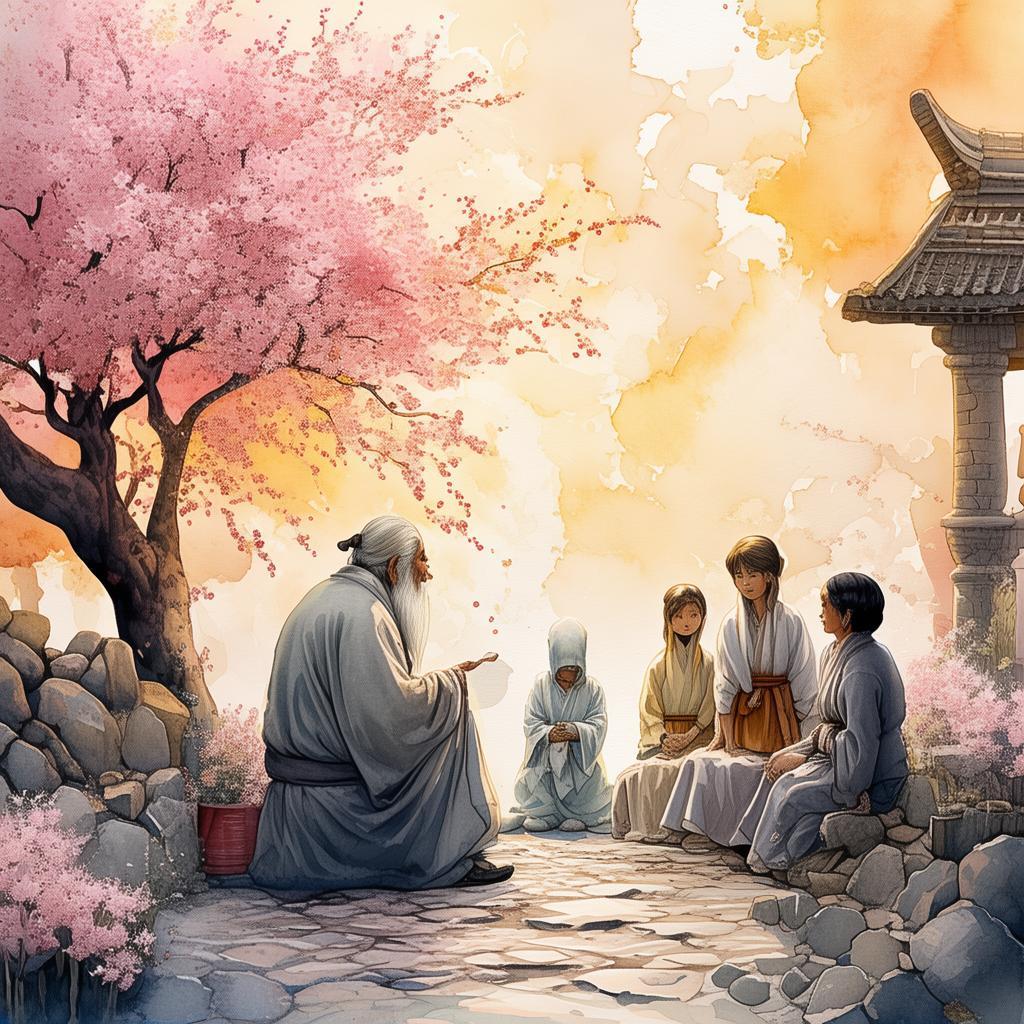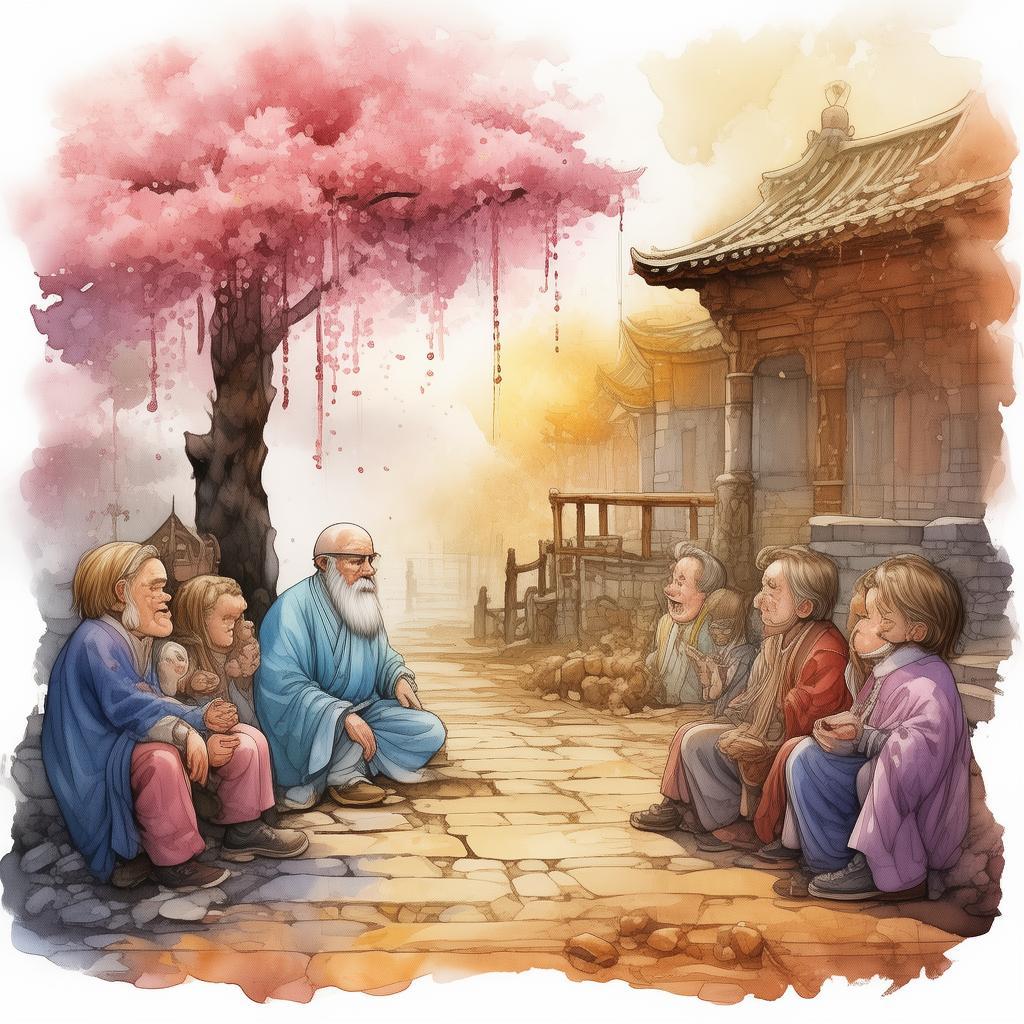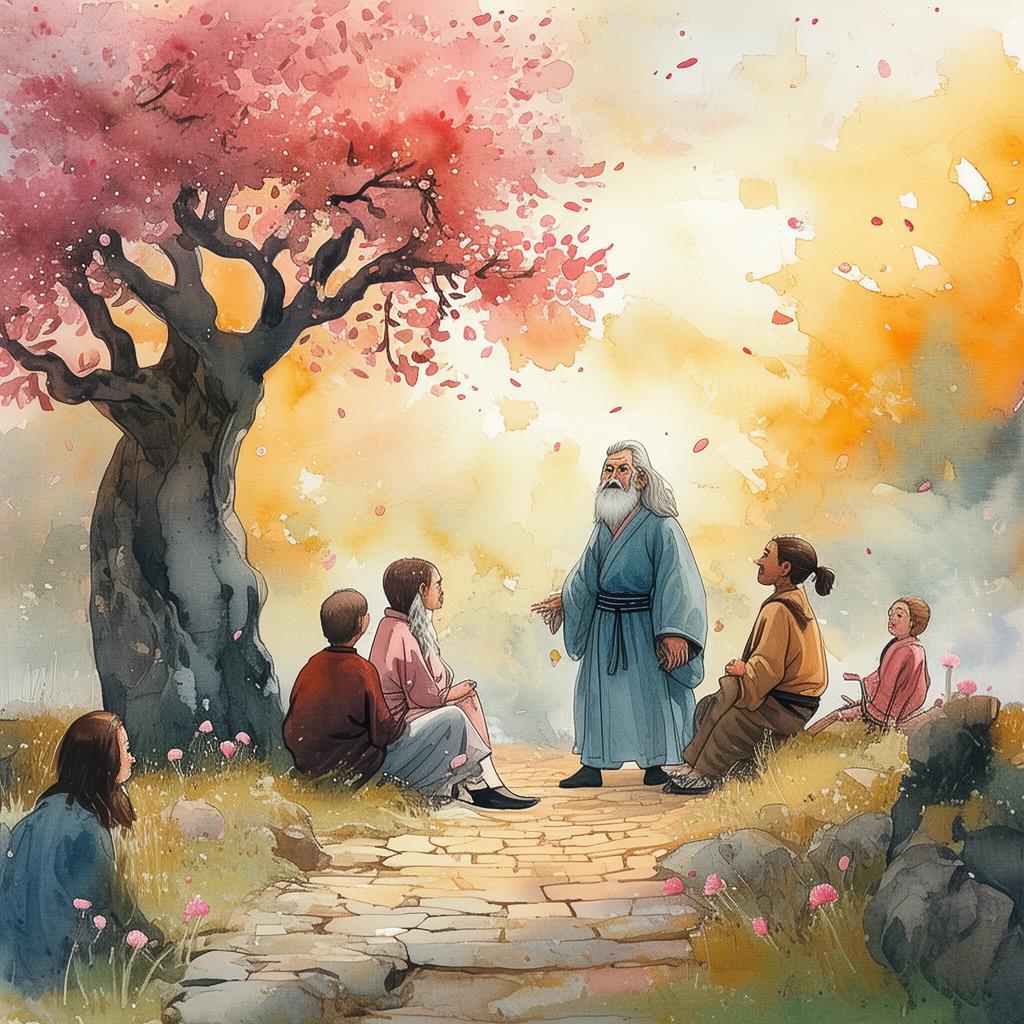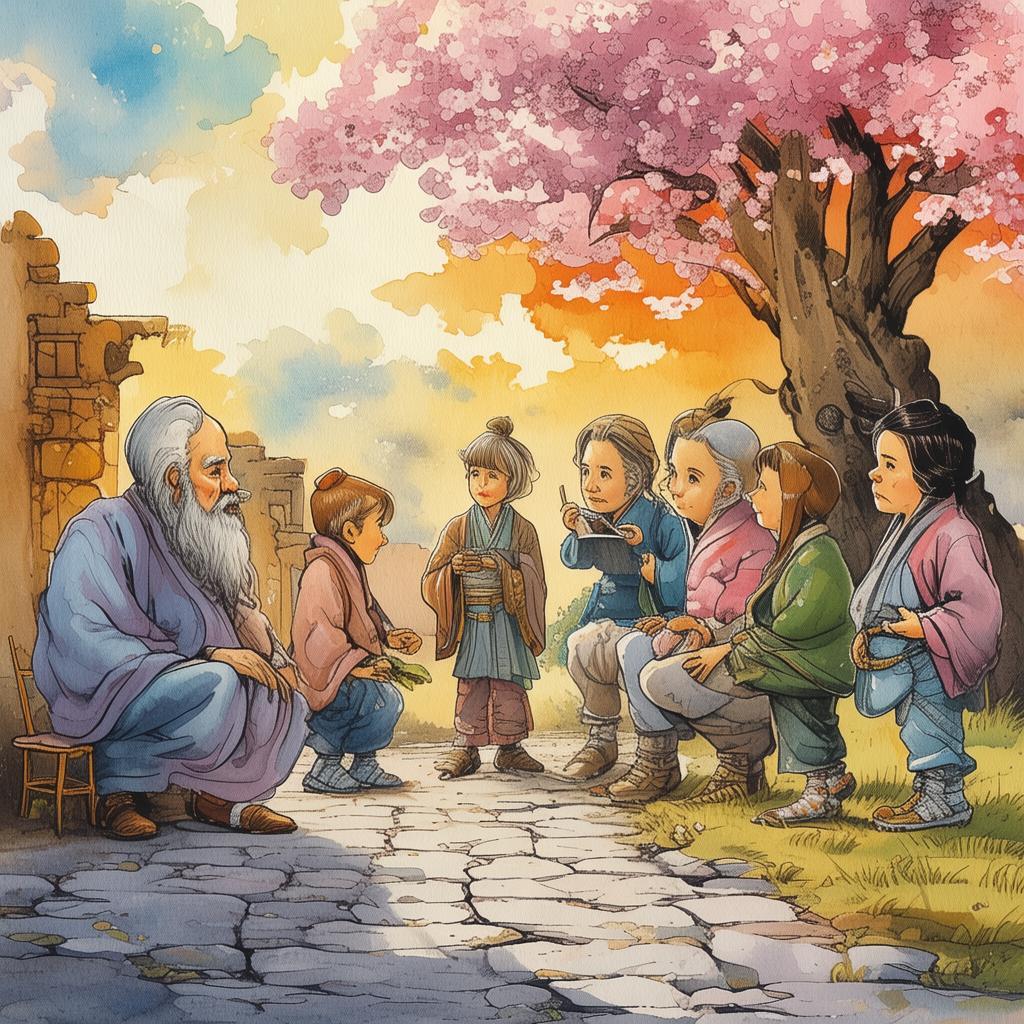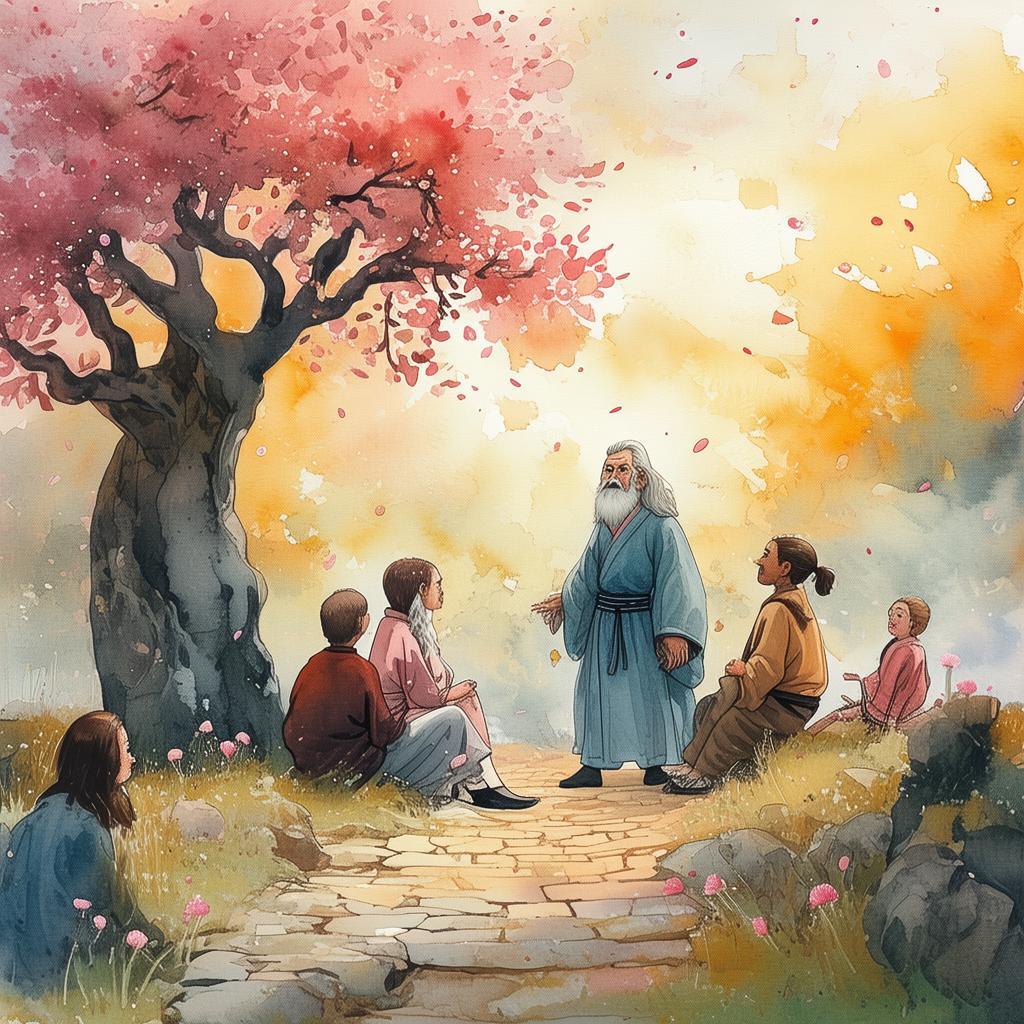Brave Bard's Lament: The Echo of the War
In the midst of a relentless war that had spanned years, a wandering bard named Lü Yilong roamed the countryside, his lyre clutched close to his chest. His songs, filled with tales of heroes and heartbreak, had become the soundtrack of a nation at war. The people clung to his lyrics, finding solace in the bravery of the warriors who fought for their land and the sorrow of those who mourned their losses.
The bard's reputation had grown, and his tales were as much a part of the war's narrative as the battles themselves. He was known as the "Brave Bard," and his songs were often called "The Echo of the War." The people believed that Lü Yilong's lyre could summon the spirits of the fallen and his voice could soothe the tormented souls of the living.
One fateful day, as Lü Yilong wandered through the ruins of a village that had once been vibrant with life, he encountered a young girl huddled in the corner of a half-collapsed house. Her eyes were wide with fear, and her hands clutched a tattered picture of her family. Lü Yilong, sensing her distress, sat down beside her and began to play his lyre, the sound of the strings resonating with the silence of the ruins.
The girl, named Meiling, slowly opened her eyes and listened to the music. It was a song about love and loss, about a soldier who had left for battle and never returned. The melody tugged at her heart, and she began to sing along, her voice barely above a whisper.
As they shared their sorrow, Lü Yilong learned of Meiling's story. Her father had been a soldier who had fought for his country, and his body had been found in the aftermath of a fierce battle. Meiling had been too young to remember him, but the picture had been all she had left.
The bard, moved by Meiling's story, decided to compose a new song, one that would honor her father's memory and the countless others who had given their lives in the war. He called it "The Soldier's Lament," and it was a haunting melody that spoke of the sacrifice and the sorrow of those who fought.

Word of the new song spread quickly, and soon, Lü Yilong was invited to perform at a grand assembly, where the people would gather to honor their fallen heroes. The night of the performance, the Brave Bard stood before a sea of faces, his lyre in hand, and began to sing.
The music filled the air, and as the first notes of "The Soldier's Lament" echoed through the crowd, the people were transported back to the days of war. They remembered the battles, the camaraderie, and the heartache. Meiling stood among the crowd, her heart heavy with emotion but also filled with pride.
As the song reached its climax, the crowd fell silent, and a single tear rolled down Lü Yilong's cheek. He played with all his might, the strings of his lyre trembling with emotion. And then, as the final note lingered in the air, a gust of wind seemed to carry the song to the heavens, where it merged with the voices of the fallen soldiers.
In that moment, Lü Yilong realized the true power of his song. It was not just a tale of war and loss, but a testament to the enduring spirit of the human soul. And as he played, he knew that the Echo of the War would live on, long after the battles had ceased.
The next morning, as Lü Yilong continued his journey, he felt a sense of fulfillment. The Brave Bard had found his purpose, and his songs would continue to echo through the ages, reminding the world of the courage and the sacrifice of those who had fought for freedom.
And so, the tale of the Brave Bard and his Lament became a legend, a reminder that even in the darkest of times, the power of song could bring hope and healing to a weary world.
✨ Original Statement ✨
All articles published on this website (including but not limited to text, images, videos, and other content) are original or authorized for reposting and are protected by relevant laws. Without the explicit written permission of this website, no individual or organization may copy, modify, repost, or use the content for commercial purposes.
If you need to quote or cooperate, please contact this site for authorization. We reserve the right to pursue legal responsibility for any unauthorized use.
Hereby declared.



